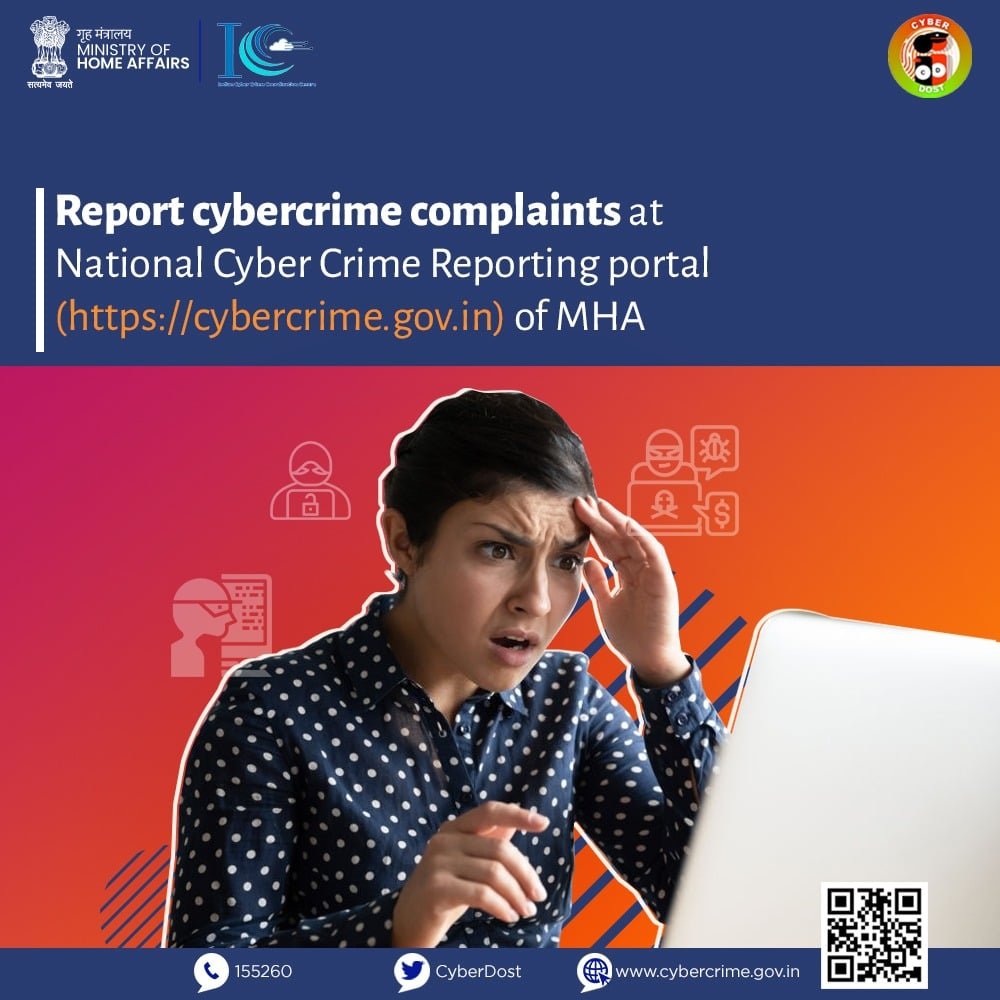NEW DELHI: To take the fight against cybercrime to the masses, the Indian Cyber Crime Coordination Centre (I4C) has launched its social media pages.
I4C (@CyberDostI4C) is now on Instagram and Facebook. The organisation comes under Ministry of Home Affairs and through social media handles it aims at promoting cyber-safety and cybersecurity awareness.
What Is Indian Cyber Crime Coordination Centre (I4C):
I4C is tasked with coordinating and effectively combating cybercrime in the country. It round the clock coordinates with law enforcement agencies in flagging cybercrime-related cases for early detection and redressal.
I4C serves as a node in the fight against cybercrime. It intends to identify research problems and conduct R&D activities in the development of new technologies and forensic tools in collaboration with academia/research institutes in India and abroad. The goal is to prevent the use of cyberspace to further the cause of extremist and terrorist organisations.
I4C recommends that cyber laws be amended as needed to keep up with rapidly changing technologies and international cooperation.
In consultation with the relevant nodal authority in the MHA, it coordinates all activities related to the implementation of Mutual Legal Assistance Treaties (MLAT) with other countries regarding cybercrime.
The project to establish I4C, with an estimated cost of Rs. 415.86 crore, was approved in October 2018 to deal with all sorts of cybercrime in a comprehensive and coordinated manner.

I4C Has Seven Components:
1: National Cybercrime Threat Analytics Unit (TAU) :
- TAU will serve as a collaborative platform for law enforcement personnel, private sector employees, academic institutions, research organisations, and law enforcement specialists.
- It will generate cybercrime threat intelligence reports and organise periodic interactions on specific cybercrime-related topics.
2: National Cyber crime Reporting:
- This unit will collaborate with existing investigative units at the state and federal levels, as well as specialists from many fields, to form expert investigation teams.
- Will be able to respond in real-time to a fast evolving cyber-crime threat.
3: Platform for Joint Cyber crime Investigation Team:
- Its goal is to coordinate intelligence-led action against major cybercrime threats and targets.
4: National Cyber crime Forensic Laboratory (NCFL) Ecosystem :
- Forensic analysis and investigation of cyber crime as a result of new digital technology and techniques.
- Develop a centre to support the investigation process.
5: National Cyber crime Training Centre (NCTC)
- It will be set up to focus on the standardisation of cybercrime course curriculum, impact containment, and investigations, as well as practical cybercrime detection, containment, and reporting training in simulated cyber environments.
- Development of a cloud-based training platform to provide a Massive Open Online Course.
6: Cybercrime Ecosystem Management Unit:
- Create ecosystems that bring academia, industry, and government together to investigate cybercrime, establish standard operating procedures, mitigate cybercrime impact, and respond to cybercrime.
- Provide incubation support for the development of all components of the cybercrime combatting ecosystem.
7: National Cyber Crime Research And Innovation Centre:
- Track emerging technological developments and anticipate potential vulnerabilities that cybercriminals may exploit.
- To capitalise on the strengths and expertise of all stakeholders, whether in academia, the private sector, or intergovernmental organisations.
- Create strategic partnerships with all such entities in the areas of cybercrime research and innovation, cybercrime impact containment, and cybercrime investigations.

